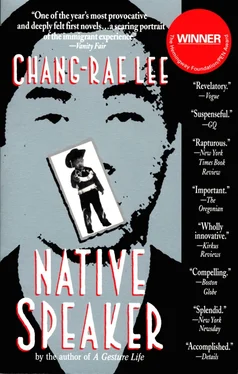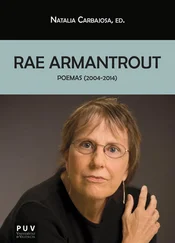We get our cartons of food but now the 10 P.M. news comes on. Mostly they report the same facts and allegations as earlier in the day, trying to talk to girls who work at the club, hounding its owner as he gets into a car. They show the outside of the hospital where a reporter files her story. They run old footage of John Kwang from various points during his career, almost a retrospective as though he has died, and as the reporter conjectures on what effect this accident will have on his council seat they splice in frames of the salon room where we sat, the interior of his sedan, the spidery crack on her side of the windshield. The mayor refuses to comment but his commissioner of police is suddenly everywhere talking tough about equal justice under the law. The commissioner promises that his force will conduct a full and zealous investigation, and that the district attorney has accorded this case his highest priority.
Janice groans and sits back down.
Now another related report, an exclusive. There is hard evidence of a community money club that John Kwang oversees. The club is like a private bank that pays revolving interest and principal to its members, many of whom are Korean, lending activities that aren’t registered with any banking commission and haven’t reported to tax authorities. The information, oddly, originates from the regional director of the Immigration and Naturalization Service.
“What the fuck is he talking about?” Janice cries. “What the hell is going on?”
But I am silent.
They now hook the director in live.
He is an average-looking man sitting behind a wide gray desk. He is pale, severely balding, with a trimmed moustache and round wire-rim eyeglasses. He speaks from the back of his mouth; the sound of his talk is sticky. He rests his hand on a stack of papers. A good number of them, he says, touching the printouts, are not documented.
“How many exactly?” the news anchor asks.
He answers that the INS has no records of birth or entry or naturalization for nearly three dozen of them and their families. Maybe it’s about a hundred total. The illegals are of all nationalities — some Koreans, of course, but mostly other Asians, West Indians, various Africans, and “most whatever else you can think of,” he says, adding that aliens are coming now from everywhere. He speaks all this without any outward alarm, unanimated, not unconcerned but as if the situation is already too far gone.
He says further that a check unrelated to this listing showed that the Korean girl involved in the accident with John Kwang is also an illegal.
“Isn’t it unwise to air this information,” the anchor suggests, “given that these aliens might now go into hiding?”
“No, sir,” the director answers, matter-of-factly. He almost smiles. “Of course the girl is in serious condition and immobile. We’ll talk to her if and when she is able. But we have hit all of the suspected illegals and their families at their residences early this morning. It should be pretty much over by now. We have them all.”
Now the people want him out. They march to his house down the middle of the street, impromptu parades of them, husbands and wives and crying toddlers on shoulders, angry white people and brown people and black people, and now even some yellow, a few faces I think I recognize from past rallies and events, yelling together for his ouster in the simple rhyme of the picket: Hey, ho, Kwang must go!
It is past noon. Warm. You can’t see the sun through the thin buffer of cloud cover but the light is fully diffused, almost too bright to see.
They surround the house in bands. Two, maybe three hundred people. I can see only a few police cars parked on the periphery, their number scattered about the crowd. One of the groups is made up of unemployed toy and light-metal workers. They are well organized, passing out pamphlets and addressing the crowd through bullhorns. Their literature asks how many of John Kwang’s money club members have stolen their jobs. They curse him for helping them after they sneak into the country. They chant that they want to kick every last one of them back to where they came from, kick him back with them, let them drown in the ocean with “Smuggler Kwang.” Next to them, in front of his driveway, people stand behind two sewn-together sheets spray-painted with the words: AMERICA FOR AMERICANS. They are generally younger, white, male, mostly talking and laughing and pointing to the house. They are drinking. Several of them intermittently wave a huge flag. One of them raises his fist and jumps up and down and shouts, “We want our fucking future back.”
The rest of the throng are those of us hoping and waiting for Kwang to come back. There are enough of us to cause friction with the protesters. Someone keeps hollering over to us the question, How many of you swam here? Our numbers seem to hold them back from physical assaults, but more shouting matches are starting to break out along the border that is quickly forming. A few police stand in the buffer zone but not enough of them, it seems, if any real trouble flares up. Shouts of “white trash” and “Spanish niggers” and “greasy gooks” fly back and forth over their heads, though they don’t seem to hear them.
He has not surfaced for nearly thirty-six hours since the accident. Then, the surprise dawn sweep by the INS. We hear rumors that he has been taken in for questioning by federal agents in Manhattan. That he will be here soon. One reporter seems able to confirm this, but no one else is certain. Janice, who arrived here early this morning, is now inside the house with May and the boys. May won’t let anyone else in. When I finally get through the busy line from a pay phone Janice says May is losing it. She keeps sending the boys away to play and right away asks where they are.
Janice figures there is no longer anything to do except stay with May and wait. She won’t draft a statement for him or make any more phone calls to confuse or delay the press. It is up to him to appear imminently and explain himself on all the counts. If he is alive and breathing he knows this.
She is afraid for him. Over the phone, she couldn’t say the word she was thinking. But I told her she was wrong. I know he is alive. Koreans don’t take their own lives. At least not from shame. My mother said to me once that suffering is the noblest art, the quieter the better. If you bite your lip and understand that this is the only world, you will perhaps persist and endure. What she meant, too, was that we cannot change anything, that if a person wants things like money or comfort or respect he has to change himself to make them possible, because the world will always work to foil you.
I will hear her voice always: San konno san itta . Over the mountains there are mountains.
She would have called John Kwang a fool long before any scandal ever arose. She would never have understood why he needed more than the money he made selling dry-cleaning equipment. He had a good wife and strong boys. What did he want from this country? Didn’t he know he could only get so far with his face so different and broad? He should have had ambition for only his little family. In turn, she’d proudly hold up my father as the best example of our people: how he was able to discard his excellent Korean education and training, which were once his greatest pride, the very markings by which he had known himself, before he was able to set straight his mind and spirit and make a life for his family. This, she reminded me almost nightly, was his true courage and sacrifice.
And when I consider him, I see how my father had to retool his life to the ambitions his meager knowledge of the language and culture would allow, invent again the man he wanted to be. He came to know that the sky was never the limit, that the truer height for him was more like a handful of vegetable stores that would eventually run themselves, making him enough money that he could live in a majestic white house in Westchester and call himself a rich man.
Читать дальше












